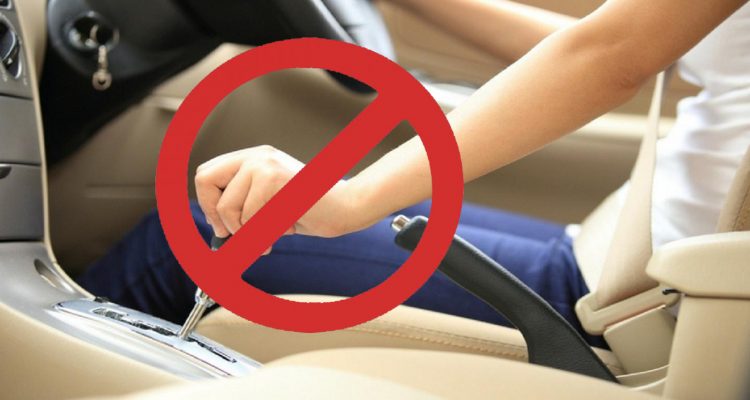Buying a car is a big investment and that is why everyone out there wants to keep their car in good condition as long as they can. However, many drivers have some driving habits, which, in turn, cause them to damage their vehicles. Here are the 10 Bad Driving Habits That Ruin Your Car Engine.
List of bad driving habits:
1. Changing To Reverse Gear Without Letting The Car Stop:
When many drivers have a common driving habit of moving their car from drive to reverse (and vice versa) before arriving at a full stop. But doing so actually damages your vehicle’s transmission and gearbox.
Designed to automatically shift ‘box gears – leave the brakes on.
Shifting gear before arriving at a stop will imprint on the transmission band instead of the brake disc and pad, which are usable items. Any work on an automatic transmission will be laborious, and therefore costly.

2. Giving The Car An Unnecessary Full-Throttle Blast:
This is a job many young drivers do from there. It is dangerous not only dangerous to one’s life but also to the car’s engine and brakes. One problem with the whole throttle explosion is that it puts too much burden on the engine and the drive-train components. Another factor that gets worse is the brakes. The amount of force needed to stop a high-speed car is high and it causes damage to the brakes.

3. Abusing The Clutch:
A faulty clutch will cause excessive wear, shortening the life of the control plate. Make sure your foot has left the clutch pedal – if fit, using the off clutch footrest. When starting up the hill, leave the car neutral with a hand brake until you are ready to move.
Riding a clutch usually happens after changing the gear, or trying to start the hill when the driver is off the pedal. Instead of clutching in, you should leave your car in neutral and keep the hand brake engaged until you’re ready to go.

4. Running Your Car On Low Fuel:
Do you have a habit of pumping only a few liters at a time? Although your car will be lighter and, as a result, less fuel burning, driving with just a few liters of petrol can damage your car’s fuel system. At the top of it, your fuel acts as a lubricant and cooling for the fuel pump, thus causing the fuel to dry and tearing the pump, causing failure. Stops, and eventually becomes an expensive alternative.

5. Hit The Roads Before Engine Warms Up:
A good habit you can bother with is that when you do not rush, allow your vehicle to drive for a minute or two before leaving. But, restoring your engine as long as the heat is on is completely up, not a good idea. By doing so, you are causing sudden changes in temperature in your engine and wearing internal engine parts that have not had a chance to be lubricated with oil.
In fact, all vehicles start out cold, so the important thing is to keep the engine warm. Until then it will not be restored. This allows the oil to heat up and circulate around the engine, potentially damaging it and spreading improper wear and tear.

6. Resting Your Hand On The Gear Knob:
Your driving instructor may have told you to keep both hands on the wheel at all times, but many of us have had bad habits as we landed on L-plates. One of these involves placing your hand on the joystick. But did you know it can be bad for transmission? Touching gear knob is bad driving habits.
The gearstick gearbox has a control rod with selector forks, designed to contact the rotating collar for a short time. If you put your hand on the joystick, you risk putting pressure on the selector fork, which results in unnecessary wear. Use Armorst instead!

7. Carrying Too Much Weight:
Modern cars are designed to carry a lot of loads, but that doesn’t mean they can’t be overloaded. Your owner’s manual often tells you the maximum weight of your car, which indicates how much you should overall carry – an exercise that often involves moving home or vacationing longer. Checked on a day off.
The more load and pressure you put on the brakes, suspension, and drivetrain. It is also worth noting that leaving unnecessary things in your car’s boot, such as golf clubs or gym gear, will not add to the stress of your car’s parts, thus fueling your car’s fuel economy and possibly your Will affect the emissions of the car.

8. Keeping Your Foot On The Brake While Driving Downhill:
Instead of relying on your brakes when traveling downhill, you should only use less gear and rely on the engine breaks. Doing so will not only reduce the wear and tear of your brake pads, but it can also save you money by replacing them.
If you need to brake downward, try to brake lightly and allow them to cool down once the brake pedal is paused.

9. Hitting Potholes And Speed Bumps Without Slow Down:
Unless you’re on the highway trying to overtake another speeding car, no need to tighten. There may be times when you need to make an emergency stop, in case there is a sudden brake. But late breaks put more pressure on the braking system as your pads and discs wear faster, as well as cost you more fuel in the process.

10. Sudden Braking:
Unless you’re on the highway trying to overtake another speeding car, no need to tighten. There may be times when you need to make an emergency stop, in case there is a sudden brake. But late breaks put more pressure on the braking system as your pads and discs wear faster, as well as cost you more fuel in the process. .





